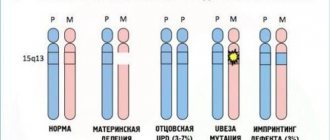Asperger syndrome is a disorder characterized primarily by a triad of symptoms.
These include problems establishing interpersonal connections and interacting with people, as well as a poorly developed social imagination. There is an opinion that the syndrome is exclusively a disease of childhood and over time it is “eradicated” from a person. This confidence is completely wrong. Having manifested itself in childhood, the disorder accompanies a person throughout his life. However, adult “Aspergers” manage to successfully mimic in society. And sometimes people don’t even suspect that there is an Aspie in their environment.
General points
Usually the disease can be diagnosed between 4 and 11 years of age. But these frameworks are not final. Very often a person learns about his diagnosis already in adulthood, although during this period it is more difficult to recognize it than in childhood.
The girl learned about her problem while studying at the university, although obvious signs of the disorder had been visible since childhood. From an early age, she experienced difficulties communicating with other children, felt different, and even told her mother that she had a special inner world that she was afraid of losing. This feature was an attachment to little things, which allowed her to capture all the colors, sounds, smells and sensations of the surrounding world. She was afraid of losing this, she was afraid that she would begin to see everything in gray tones.
She entered the university as a correspondence student. At the same time, I worked and attended language courses. The new environment and large number of people most likely served as an impetus for the aggravation of the condition. More and more often a wave of anger and irritability washed over her. If before she could handle it, now the situation is out of control. Plus, her friends began to point out oddities in her behavior: non-compliance with basic rules of communication, lack of a sense of humor, inadequate and clumsy reactions to certain situations.
Ultimately, she still had to see a specialist. And she was diagnosed with Asperger's syndrome.
Adult Aspergers are very mysterious individuals. They themselves notice that they are completely different. You will not find among them people who would be completely identical in behavior.
Aspies claim that their condition is not a pathology, but a peculiar version of the norm. These are simply people with a different vision of the world. Many of them say that if they had the opportunity to completely cure their disorder, they would not do it. Their diagnosis is a significant part of their character, and if it were deprived, they have no idea who they would become.
Despite certain difficulties in their existence, their lives also contain joyful moments that are inaccessible to ordinary people. Their special form of perception of the world, in addition to negative aspects, also has positive aspects. They, in the course of successful compensation, help a person to socialize in society and reach certain heights.
The story of Stephen Shore, a teacher at Boston University, a member of the Autism Society of America and the author of an autobiographical essay about his life with AS, is proof of this. He did not speak until he was 4 years old and was diagnosed with atypical development with profound autistic features. His parents were advised to place the boy in a specialized boarding school, but they did not do so.
Stephen currently holds a PhD in Special Education. He helps people with autistic disorders open up and works a lot with children. Gives lectures and reports.
Many psychotherapists, when working with Aspie people, agree that their goal is not to eradicate the disease, but to discover those symptoms that become a source of stress for their clients and interfere with normal existence. Experts are also looking for ways to overcome them.
INTRODUCTION TO THE DISEASE
Asperger's syndrome is a mental disorder characterized primarily by problems of social adaptation and stereotypical behavior, but not accompanied by mental retardation and speech underdevelopment. In some cases, such patients, on the contrary, have a high intellectual level.
The syndrome was first heard of in the mid-20th century, when the Austrian psychiatrist and pediatrician Hans Asperger studied and described four children with problems with social interaction. They had difficulty establishing wordless contact with people, were emotionally stingy and incapable of empathizing with others, and also showed some clumsiness in their movements.
In addition, the symptoms of this disorder also manifested themselves in its discoverer.
The doctor designated the discovered syndrome as autistic psychopathy. He zealously and obsequiously defended his “findings,” saying that people with autistic psychopathy, having gone through great difficulties in childhood, occupy a certain cell in society and contribute to its development. The scientist believed that such patients have a special way of thinking and in the future can achieve significant heights.
In the 1990s, the disorder was given its modern name: Asperger's syndrome. The concept was identified as an independent diagnosis and its main criteria were formulated.
The International Classification of Diseases currently rejects this term. The disorder is coded as “Schizoid disorder of childhood.”
One of the theories of the occurrence of the disease is based on a hereditary factor. It is believed that if a child has sick relatives, especially the father, he has an increased risk of developing the disorder.
It is assumed that even in utero, under the influence of teratogenic, that is, destructive, factors, anomalies and developmental defects form in the fetus. They lead to pathological migration of embryonic cells, causing changes in the structure of the brain. The latter, in turn, disrupt the neural pathways responsible for thinking and behavior.
Asperger's Syndrome and Autism
AS is classified as an autism spectrum disorder.
It has been compared to high-functioning autism because the symptoms are very similar. The similarity between the disorder and autism lies in its unique perception of the world. Aspergers call ordinary people neurotypical and claim that they will never see the world through their eyes. In difficult situations, Aspies, just like autistics, are capable of becoming hysterical. They withdraw into themselves, do not react to external influences and spend a long time in one position, swaying monotonously or staring at one point.
Representatives of both diagnoses find it difficult to find a common language with people and establish eye-to-eye contact.
What distinguishes them from autistic people is the complete preservation of their intelligence, sometimes even overdeveloped. Aspergers develop speech on time and even earlier, unlike autistic people. This characteristic is considered indicative in the differential diagnosis: autism is diagnosed only if there has been a delay in speech development. True, the speech background in AS changes its design in terms of intonation, tone, pitch, and timbre. Many people with Asperger's are very talkative.
The similarity of symptoms between autism and Asperger's syndrome often causes difficulties in making a diagnosis. Many scientists agree that there is no need to distinguish between these two concepts.
The disorder is believed to be more common among the male population. However, this trend may be due to a diagnostic problem.
Female Asperger's is more difficult to recognize than male Asperger's. This is due to the fact that girls adapt better to society and adhere to general social norms. They are more likely to engage in role-playing games as children and learn rules of behavior. Their speech is not as heavy as that of men, it is not so full of terms, complex expressions and heavy structure.
Interaction with people
Asperger syndrome in adults has similar symptoms to the course of the disease in childhood. First of all, Aspergers differ from ordinary people in their behavior and interpersonal communication.
In childhood, communication with other children causes great difficulties for Aspies. Growing up, these people, thanks to their high intelligence, are able to adapt to society and become quite successful. However, oddities in their behavior still persist.
They are characterized by problems with the so-called theory of mind. People with this disorder are unable to decipher social cues that normal people recognize intuitively. We are talking about such features of communication as facial expressions and gestures, voice intonation, hints and irony.
On the other hand, it is difficult for such people to open up to their interlocutor and convey their emotions to him. Often the counterpart misinterprets their nonverbal signs.
In addition, people with AS have developed “mind blindness.” It lies in the inability to understand the feelings and intentions of another person. To some extent, this feature can turn against them. It is difficult for them to recognize lies and correctly evaluate the actions and words of other people. This makes them naive, which is why they often become victims of scammers and criminals, because they are used to taking everyone’s word for it.
Aspergers are quite suggestible. They have difficulty recognizing when someone is trying to manipulate or harm them.
Because Aspergers have difficulty recognizing other people's feelings, they are often accused of lacking empathy - the ability to feel compassion and empathy. This becomes a big problem socially as it makes it difficult to form friendships with people.
A girl with the syndrome said that when some rules of communication were explained to her, it became easier for her to communicate with her interlocutors. They explained to her that when meeting people you know, you need to say hello, ask how they are doing, even formally, smile or nod in greeting. She herself noted that all these unspoken rules of communication seemed strange and unexpected to her.
Aspies' lack of intuition in social interactions can make them seem rude and cold-blooded in people's eyes. For example, they may not listen to the interlocutor’s speech
and directed towards them. Turn around and leave. Talk incessantly about what interests them specifically, not allowing other participants in the conversation to get their word in. Or not paying attention to whether they are being listened to or not, whether others are interested in this topic.
They can invite you to visit, and when you arrive, open the door and leave you at the threshold, going into the room.
Individual people with Asperger's syndrome exhibit a condition called prosopagnosia or face blindness. The phenomenon is characterized by a reduced ability to remember and recognize people's faces. Simply put, get to know your friends. As a rule, landmarks in their recognition are details of clothing, voice or gestural features. It is similar to when you are far from someone you know, you cannot distinguish his facial features, but, nevertheless, you determine who he is by the general image.
Aspie people may not even recognize their close relatives or themselves in a photograph.
Difficulties in theory of mind in Aspergers can be characterized as:
- inability to predict and explain the behavior of people in contact with him;
- inability to predict and understand their emotions and feelings;
- difficulty in determining other people's intentions;
- difficulty in determining someone else's view of things;
- difficulty understanding the unwritten rules of communication;
- inability to recognize how their behavior affects other people;
- cannot distinguish truth from lies.
Despite the similarity of symptoms, each Aspie expresses them individually, to a greater or lesser extent. Given their high intelligence and the ability to demonstrate well-developed abilities in various fields, they would seem to be able to master any profession. However, it is precisely the problems in communicating with other people that remove most highly communicative professions from this list.
At the same time, their low ability to establish intimate interpersonal attachments does not prevent them from starting relationships and families.
Reinvent yourself
Digital communication platforms make it easier for people to fall into the trap of protagonist syndrome. Anonymity allows people to reinvent themselves or, in extreme and potentially dangerous cases, much more easily present completely false versions of themselves. The lack of direct and corrective face-to-face feedback allows this behavior to persist.
People are quickly becoming more entrenched in their behavior on social media platforms. This sometimes results in them being manipulated by others into behaving more and more outrageously in order to gain the social approval they may crave. Sometimes they use the Internet and manipulate themselves, causing others to act in ways they would not normally act. These manipulators typically exhibit elements of the dark triad: psychopathy, Machiavellianism, and narcissism.
How to Get Perfect Abs: Exercise and Nutrition Tips from the Experts
The photographer captured a red-haired girl and her rat, who have been “side by side” for 3 years
How to wear thin bangs: some stylish celebrity examples
Feelings without concealment
Undoubtedly, emotional immaturity brings its own inconveniences into the lives of people with Asperger syndrome. But it forces them to show those positive traits that sensual people can hide or modify to benefit the situation.
We are talking about such a trait as, for example, honesty. Needless to say, not every one of us is capable of 100% honesty. Sometimes we are shy, embarrassed to tell the whole truth face to face.
As for Aspies, such barriers do not exist for them. Without concealment or embarrassment, they will express everything that comes to their mind, without trying to hide details, soften or embellish. They are simply not capable of lying due to their characteristics, so it is very difficult to drag them into manipulations or scams with obvious benefit to them.
Such the highest honesty may be perceived by others as bad manners, narrow-mindedness or tactlessness. However, upon closer inspection, it becomes clear that this is the result of steadfastness and lack of maneuvering of thought.
These truth-tellers have no vanity or boasting. Giving an objective assessment of what is happening, rationally evaluating any actions, they openly and sincerely rejoice at the achievements of other people, without envy or malice. They neutrally perceive flattery and praise addressed to them, and insults and criticism do not cause emotional reactions in them.
For Aspergers, there are no social boundaries. They easily break the rules, without fear of appearing funny or bizarre in someone's eyes. They are driven by the desire for justice or to obtain information. They don’t care what status the person is in front of them. They are able to destroy all restrictions, no matter that the result may be a break in social ties.
The man went down to the hotel lobby almost completely naked, wearing only his underwear. And without a hint of embarrassment he asked those present where his pajamas were.
SCHOOL AGE
Growing up, the Aspie child gradually grasps the meaning of children’s communication with each other and also strives to join this game. However, his social immaturity becomes an obstacle on this path. Therefore, the child establishes communication connections through imitation of the behavior of other children. And some people do it quite skillfully. And if the person being imitated is simply an object to be imitated, then everything turns out quite well.
The problem arises when the Aspie teen has a tendency to imitate the behavior of the “bad boy.”
Over time, children with Asperger's may not only improve their social skills, but also acquire negative characteristics. One of them is psychological defense in the form of anger or arrogance, which can subsequently develop into physical aggression. This reaction occurs in response to the persecution and bullying that some children with the syndrome are subjected to due to their atypical behavior.
In general, at an older age, such children manage to establish sincere, friendly relationships with their peers. But, given their categorical attitude towards friendship, the choice of comrades is subject to careful selection.
Touch Sensitivity
As Aspergers themselves state, their world is much louder than that of the average person. This is due to increased sensitivity to any stimuli, be it smells, touches, sounds, or visual images. It has been established that a similar phenomenon occurs in approximately 40% of people with AS. A hypersensitivity reaction can be triggered by anything: air temperature, bright light, food, clothing such as scratchy wool or labels on the underside, the touch of other people or large accumulations of them.
For example, when riding on public transport (subway, train, bus), Aspies sometimes use earplugs or headphones that play their favorite music. The mass of people, stuffiness and noise irritate them, unbalance them and lead to stressful conditions. Music helps to distract and calm down. When the situation becomes extremely tense, they have to leave it, go off the route to stand alone and enjoy the silence, and then continue on foot.
There are special types of therapy to cope with sensory problems. One of them is sensory integration therapy. Its essence lies in deliberate contact with unpleasant stimuli, occurring gradually and in doses. Thus, a person begins to get used to such collisions, no longer feeling irritability and panic.
It is very important for Aspergers to identify a method or strategy for neutralizing unpleasant impulses. For some, this solution is a small dose of alcohol. According to Aspies, it muffles all obsessive sensations and helps reduce stress levels. Someone needs to retire for a while, wander through empty streets, someone swings on a swing.
Cost of services
| CONSULTATIONS OF SPECIALISTS | |
| Initial consultation with a psychiatrist (60 min.) | 3,500 rub. |
| Repeated consultation | 2,500 rub. |
| Consultation with a psychiatrist-narcologist (60 min.) | 3,500 rub. |
| Consultation with a psychologist | 2,500 rub. |
| Consultation with Gromova E.V. (50 minutes) | 12,000 rub. |
| PSYCHOTHERAPY | |
| Psychotherapy (session) | 6,500 rub. |
| Psychotherapy (5 sessions) | 25,000 rub. |
| Psychotherapy (10 sessions) | 48,000 rub. |
| Group psychotherapy (3-7 people) | 3,500 rub. |
| Hypnosis (1 session) | 10,000 rub. |
| Hypnotherapy course (5 sessions) | 45,000 rub. |
| Psychotherapy session with E.V. Gromova (50 minutes) | 12,000 rub. |
| TREATMENT IN A HOSPITAL | |
| Ward for 4 persons | 8,500 rub./day |
| Ward for 3 persons | 9,500 rub./day |
| Ward for 2 persons | 11,500 rub./day |
| Ward for 2 persons Comfort | 12,500 rub./day |
| Ward 1 bed VIP | 16,500 rub./day |
This list does not contain all prices for services provided by our clinic. The full price list can be found on the “Prices” , or by calling: 8(969)060-93-93. Initial consultation is FREE!
Meltdown
Meltdown can be described as a nervous breakdown or hysteria. In this condition, a person with Asperger's syndrome loses self-control and ability to think clearly. He becomes aggressive and can say a lot of unpleasant things to those around him at the moment, even if he doesn't really mean it.
People in this state are capable of causing physical harm if someone tries to intervene to revive them. But more often they cause damage to themselves - the feeling of pain allows them to distract attention from what is happening.
Another option for meltdown is shutdown. At the same time, despite the breakdowns, the person becomes motionless. He looks at one point and does not react when addressed to him. He takes a sitting position or can lie down on the floor or bed. If such a situation overtakes a person in a public place, he is not able to leave it and remains here until the end of the meltdown.
Disruptions can lead to blackouts. But this does not mean that the tension level decreases. Shutting down in this case becomes the next stage of a nervous breakdown.
The cause of meltdowns is exposure to extreme levels of stress that a person is unable to cope with. This susceptibility is associated with Asperger's hypersensitivity. Stress in this case is not momentary, but becomes the result of layering one stressor on top of another. The clincher may not be the most important problem, it just becomes the final position in a series of obstacles.
The following factors can provoke such an exacerbation:
- a sudden change in the planned routine;
- excessive demands;
- excessive social involvement.
During an attack, a person uses stimming or self-stimulating behavior. Talks to himself, sways from side to side, fingers, etc.
This is how people with Asperger's syndrome describe their experience during meltdown. It feels like everything around you is becoming intense and pronounced. I lose control over myself, and someone else controls my body, turning off rational thoughts and arguments. The blood is pulsating in the head. I can't handle it, although somewhere deep down a small part of me understands that something wrong is happening. He wants to stop this, but he can’t.
There is tension in my head that I want to get rid of. There is a feeling that I am in a trap. There are too many emotions building up inside me that I need to run away from. Everything around you becomes too clear. This feeling occurs when you swim underwater and then emerge. I stop controlling my speech, I say what I should have been silent about. In most cases, I bring obvious inconvenience to others. And I feel embarrassed. After the breakdown, for a long time I cannot understand what and why happened to me. People around me do not take me seriously and think that this is how I attract attention.
Other signs of SA in adults
Aspergers are characterized by an amazing passion for what they love. They immerse themselves in it, day and night, studying the object of their admiration. In a favorable situation, they become excellent masters of their craft and achieve great success.
Maria was passionate about languages: she was fluent in German and English, and spoke fluent French and Italian. When she decided to also learn Hindi, the teacher was skeptical. The group members had already studied all the grammar and were learning to read, while her knowledge was zero. But after a couple of weeks, she was ahead of her classmates by a wide margin, because she spent all her days and nights studying the language.
If Aspies do what they love, they give themselves completely to it. As a rule, their interests are very specific and narrowly focused.
Aspergers have an amazing attention to detail. They are meticulous and pedantic. Each item is strictly in its place. But this trait is not total - among them there are also those who pay little attention to minor details.
Often, high anxiety in people with AS causes them to develop OCD - obsessive-compulsive disorder. It manifests itself in the repeated repetition of actions that do not matter. Repetitive body movements, usually tapping fingers, twitching shoulders, swaying, fixating on an object, for example, toothpicks, pathological counting - counting steps.
Aspie people are incredibly conservative. It is difficult for them to move away from their usual daily routine. They plan their day carefully. Waking up in the morning and getting ready for work, they plot out the route they will follow. They are required to think through several options for different occasions and pay attention to what emotions they will experience on the road. They think through every upcoming event to the smallest detail. And they decide whether it is worth the effort that will have to be made to implement it.
Executive functioning difficulties are problems in the implementation of planning, organizational skills, etc. For example, a person with Asperger's syndrome may find it difficult to integrate individual parts into a coherent whole. Their concentration suffers and it can be difficult to direct their thoughts in the right direction.
Physically, Aspergers are not much different from ordinary people. But they are characterized by some clumsiness in their movements. Because of this, it becomes difficult for such people to master certain sports or writing; their posture and gait have a special pattern.
When communicating with those suffering from the syndrome, you may be wary of the nature of their speech. She is monotonous and slow, although she has a rich vocabulary. Their speech is delivered correctly, filled with terms and scientific concepts, but its imagery is incomprehensible to Aspergers. They do not understand the meaning of proverbs, sayings, irony and humor, are incapable of generalizations, and cannot apply one rule to several situations.
Since in most cases patients are not able to understand the feelings and emotions of another person, their entire conversation is directed towards themselves. More precisely, it is a monologue in which the Aspie talks about his hobbies, etc. When they are taught that in a conversation you should be interested in the life of your interlocutor, they can be discouraging with their questions. “What is it like to be an alcoholic?” they ask a person addicted to alcohol. Or: “How much do you keep in your bank account?” There are no unspoken rules of communication for them.
Their thinking is at a high level, they solve complex, specifically structured problems. However, it lacks flexibility and the ability to think creatively.











